You may have come across the term ‘white label SaaS’ quite often recently, especially when discussing possibilities around digitisation of business. Fortune Business Insights says, the global SaaS market is estimated to become a USD 315 billion space in 2025 and a key part of this growth can be linked to white label SaaS solutions.
SaaS white label offers businesses quick and reliable solutions at an affordable cost, which encourages more SMBs and agencies to upgrade workflows without starting from scratch.
But is it practical for you?
Read along to know more about white label SaaS software and its benefits.
What Is White Label SaaS - A Brief Insight
White label SaaS is a cloud-based software service created and maintained by a vendor. It is then licensed, rebranded and resold by another company as their own product.
This is also where white label SaaS differs from standard SaaS we are used to seeing. In case of white label SaaS, the final product is sold with the reseller’s domain, company logo, and brand identity. And unlike standard SaaS, the end customer cannot interact directly with the original vendor.
It is a common practice among agencies, resellers, and IT firms to customize software that offers CRM systems and even project management tools. This frees their time and resources that could otherwise go into developing software in-house.
Faster market entry and lower development costs are the key benefits of this software model. As a result, more businesses are adopting white label SaaS and contributing to the growth of the industry.
Key Benefits of White Label SaaS

Here’s how you can benefit from launching a white label SaaS:
- Less Time-To-Market
Today, more companies reach out to white label SaaS platforms to avoid lengthy product development cycles. Developing a custom solution can take years before the product finally reaches the market.
On the other hand, ready-made cloud-based solutions help resellers to brand and deploy new platforms in just a couple of weeks. In fact, the white-label SaaS arrangement further allows businesses to respond quickly to evolving market demands and enter new markets much faster.
- Low Cost
Licensing existing platforms through white label SaaS takes less time than developing from scratch. It also lowers the costs involved with testing and system maintenance. Additionally, white label SaaS platforms eliminate the need to invest in software development, infrastructure, and installing updates. Instead, companies pay resellers a minimal recurring licensing fee or subscription amount.
Another great advantage is that the entire backend maintenance, security updates, and server loads are handled by the vendor, which helps lower upfront cost and effort. This allows companies to focus on other important areas of their business. Usually, a white label SaaS solution can cost between USD500 and USD5000 monthly, versus USD100000 for custom developments.
- Brand Control
White label SaaS solutions will offer you customisation options, which will allow you to make tweaks based on your branding needs. Resellers can modify domains, change interface UI colours, logos, and even workflow design.
This helps them create a complete brand experience for their targeted audience and clients. As a result, resellers have brand control and ensure all their dashboards and onboarding pages are aligned with their brand image.
- Scalability and Added Security
It is usually the vendors who handle the white label SaaS infrastructure. Such models are designed to handle increasing server loads and user bases without the need for resellers’ direct intervention.
They also implement standard security protocols such as data encryption, security patches, and compliance with regulators such as GDPR and SOC 2. These additions can ensure that your company’s data handling processes are protected, systems are compliant, and business growth efforts continue.
- Recurring Revenue
Most platforms offer subscription-based models for their white label SaaS service. Sometimes these models come with monthly or annual fees, and the pricing is based on the services provided.
This allows resellers to generate a stream of predictable and recurring income. It also helps them achieve financial stability and explore advanced features such as AI, automation, or data analytics with ease.
- Advanced Capabilities
To ensure companies can adapt and implement advanced tools, white label platforms now incorporate extra features such as AI chatbots, automation workflows, centralised communication tools, and analytical dashboards.
It allows resellers access to advanced features that would otherwise cost them time, energy, and money. As a result, companies are better equipped to deliver innovative solutions without high R&D costs and align their services with evolving client needs.
Challenges of White Label SaaS
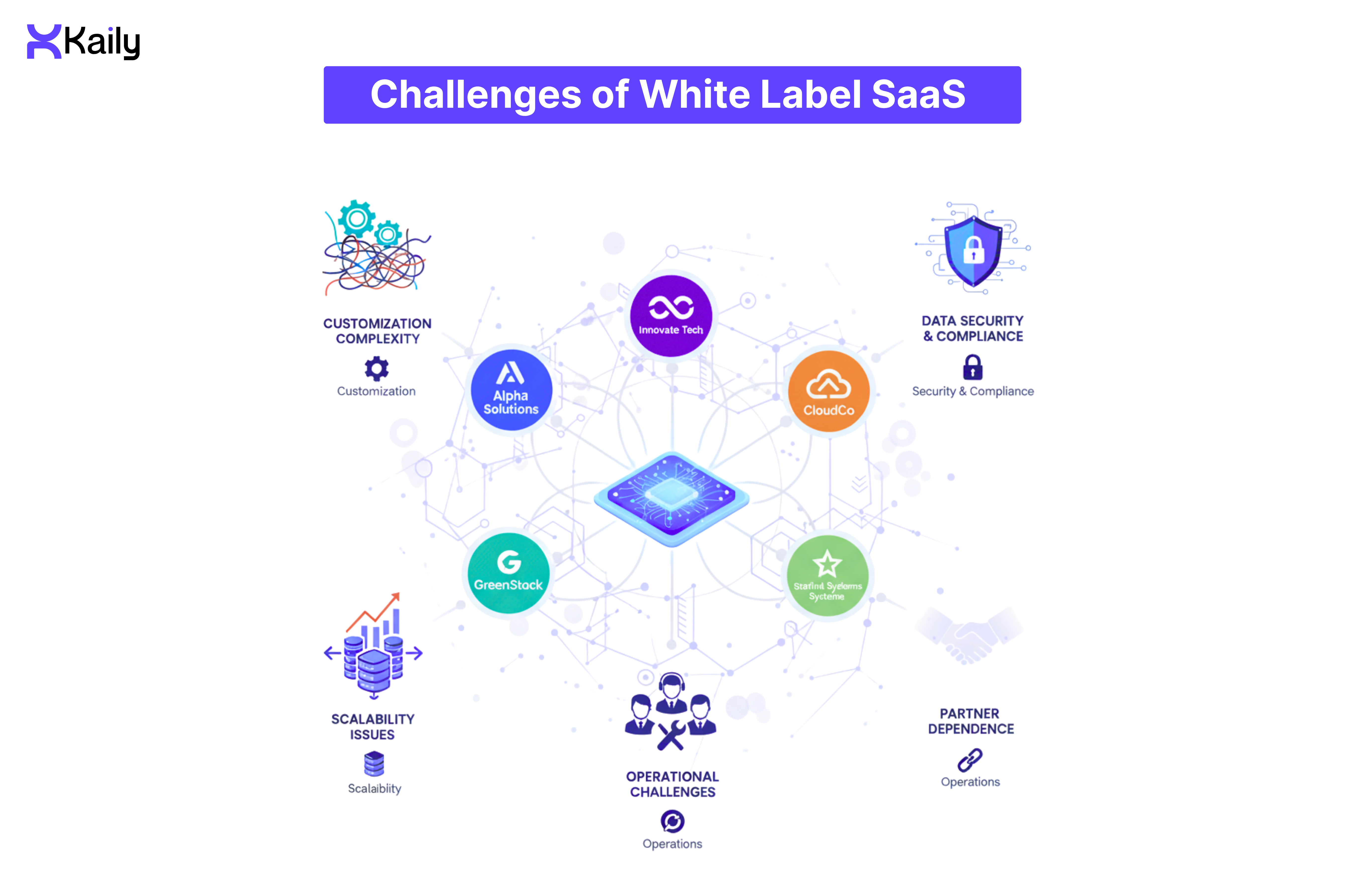
To gain a complete picture of the scope of white label SaaS, it is important to become familiar with its limitations. Some of the common challenges associated with SaaS white label include:
- Dependency on Vendor:
Most reselling firms depend on the vendor for uptime, updates, and resolution, as they are responsible for these areas. This makes it important to appoint vendors with a strong support team and comprehensive contact.
- Support Burden:
Support for front-end issues is dealt with by the resellers. This puts additional demand on their teams while freeing yours to focus on other core operations.
Hence, to ensure client satisfaction and customer retention, resellers need to invest in dedicated support staff or tools such as chatbots to deal with routine queries independently.
- Limitations on Customization:
Some platforms do not offer scope for deeper customization. Most sophisticated customization, including new feature development or UX upgrades, is often restricted or requires in-depth technical skills. This makes it important for resellers or agencies to dip into their technical skills or upskill for advanced customization or differentiations.
- Pricing Transparency:
Tiered pricing is often complex and calls for careful margin calculation to ensure profitability. Additionally, sudden cost escalations due to overage fees or licensing fee hikes tend to impact bottom lines as well as pricing competitiveness for resellers.
How Does White Label SaaS Work?
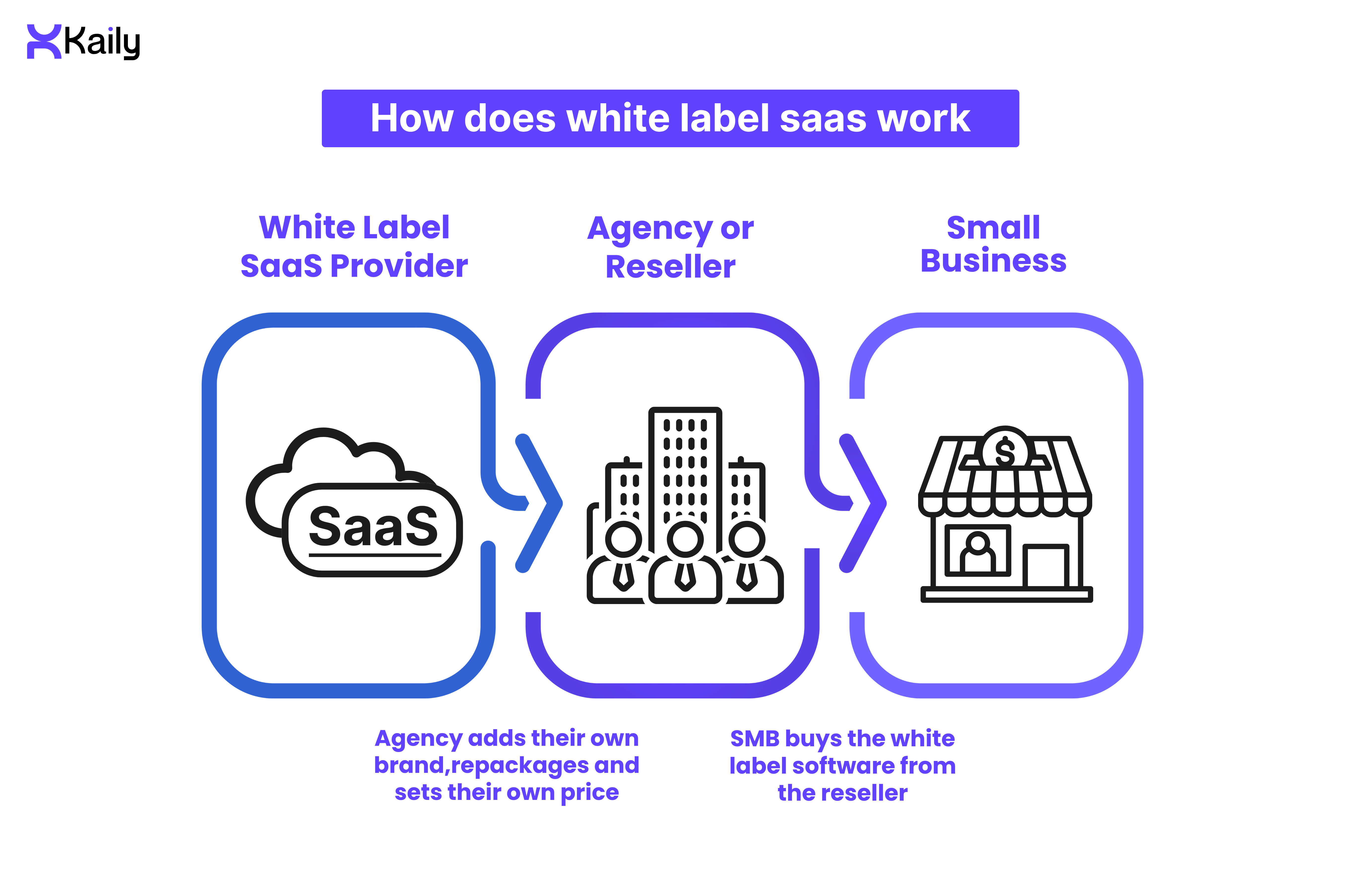
Let’s break down in simple steps how white label SaaS works for resellers-
- Step 1: Partner with a Vendor
Select a white label SaaS provider that can help you offer a ready-to-use, customisable platform.
Next, you should check factors the platform's compliance standards, support services, and API availability. At the same time, find out how well the platform can be customised and resold under your company's brand.
- Step 2: Customise Your Platform
After you have locked in your vendor and evaluated the features, proceed to customise the platform for company branding. In this phase, your focus should be on rebranding UI with custom domains, brand colour schemes, and logos.
You could also modify workflows and add or remove certain features. These tweaks help resellers enhance the marketability of the platform.
- Step 3: Integrate Core Tools
The next step is all about technical integration for proper data flows. Here, API access and prebuilt connectors will help integrate SaaS solutions with existing systems such as payment gateways, CRM, e-commerce platforms, or other workflow tools.
A smooth integration of tools will ensure that platforms function as an extension of existing infrastructure.
- Step 4: Product Launch
After a strategic branding and integration process, prepare to launch the product into the market under your reselling brand's name. Here, it would be beneficial if you have a functional marketing strategy to rely on at different stages.
Additionally, ensure that you develop pricing models, including both subscription tiers and one-time fee options.
Since you will control the entire sales process, customer onboarding, and client support, make sure to have a proper plan ready to promote the platform, attract leads, and turn queries into sales.
- Step 5: Support and Maintenance
Please note that your SaaS provider will be handling infrastructure management, updates, security patches, and system compliance. However, you will have your roles and responsibilities carved out as well.
Resellers have to manage customer success efforts, ensure proper user support and cater to any additional feature or customisation requests of clients.
This allows resellers to focus on company growth and at the same time strengthen customer relations while their preferred vendor handles platform stability and security.
Best White Label SaaS Platforms and Software in 2026
These are some of the best white label SaaS platforms in 2026:
- Kaily:
It has a no-code builder and can speak in over 90 languages. Kaily also provides extensive API integrations, SaaS subscription pricing models, both annual and monthly, AI-driven conversational capabilities and custom domains. These features make Kaily a market differentiator and highly suitable for SMBs in domains such as marketing, customer support, and BPO services.
- Insighto:
Offers real-time dashboards and multi-client views, which makes it ideal for growing agencies and resellers. Notably, it supports custom domains and seamless API integrations to help with branding and upgrades, while its tiered SaaS pricing model makes it suitable for budding businesses.
- Vendasta:
Features advanced SEO, CRM, reputation management, and marketplace features. These features, alongside the platform's smooth performance, make it a decent fit for digital agencies. Vendasta also offers custom domains and APIs, but its tiered pricing is based on usage.
- Simvoly:
It offers drag-and-drop functionality and eCommerce readiness to resellers. Its customer domain support, seamless API access, and SaaS pricing model make it suitable for startups and agencies.
- ActiveCampaign:
It comes with advanced segmentation and allows per-client workflow customization. Moreover, its custom domain and API integration alongside enterprise SaaS pricing add to its value and functionality, making it a good fit for growing enterprises and marketing teams.
- Luzmo:
It extends custom dashboards and multi-tenant capabilities. Its functionalities and SaaS pricing model are designed keeping in mind SaaS product teams. Meanwhile, its advanced customer domain support and API access make it quite popular among resellers.
- SPP:
It focuses on branded client portals that come with order or billing management and team roles. SPP supports customer domains and Zapier/webhook integration, and best of all, it comes with a tiered SaaS pricing. These features and coverage make SPP suitable for SMBs and service companies.
- WotNot:
It comes with a no-code bot builder and white-label UI. Just like the other top platforms, it offers customer domains, API support, and a SaaS pricing structure. Its close-knit features make it suitable for agencies and SMBs.
Use Cases, Metrics, and Niche Opportunities in 2026
Here are some popular niche opportunities for white label SaaS in the current market:
- Agencies and Consultants:
They can resell branded digital marketing, analytics, or AI-powered chatbot tools to their clients. Using branded and integrated white label Saas CRM tools can help boost client retention by 42% and facilitate 2.3X faster growth.
- E-commerce Brands:
They can deploy white label chat support and AI automation features to boost sales and resolve customer queries quickly. E-commerce companies that upgrade to AI chatbots and automate common queries notice around a 30% boost in support efficiency. This further helps them achieve faster resolution times and improve customer satisfaction.
- Service Providers:
They can customize client portals and integrate invoice, onboarding, helpdesk, or appointment scheduling features to streamline workflow processes.
- BPO and Contact Centers:
By integrating multilingual AI agents like Kaily, BPO and support centers that serve MNC clients can provide smooth support to a global customer base. Kaily, in particular, speaks in over 90 languages, which enables cost-effective multilingual customer service.
- Real Estate, Healthcare and Finance:
Businesses operating in these sectors can benefit from custom dashboards, chatbots, or booking tools to ensure more compliant frameworks. In addition, platforms with built-in GDPR and SOC 2 certifications can help them meet data security and privacy standards.
How to Launch and Scale a White Label SaaS Product?
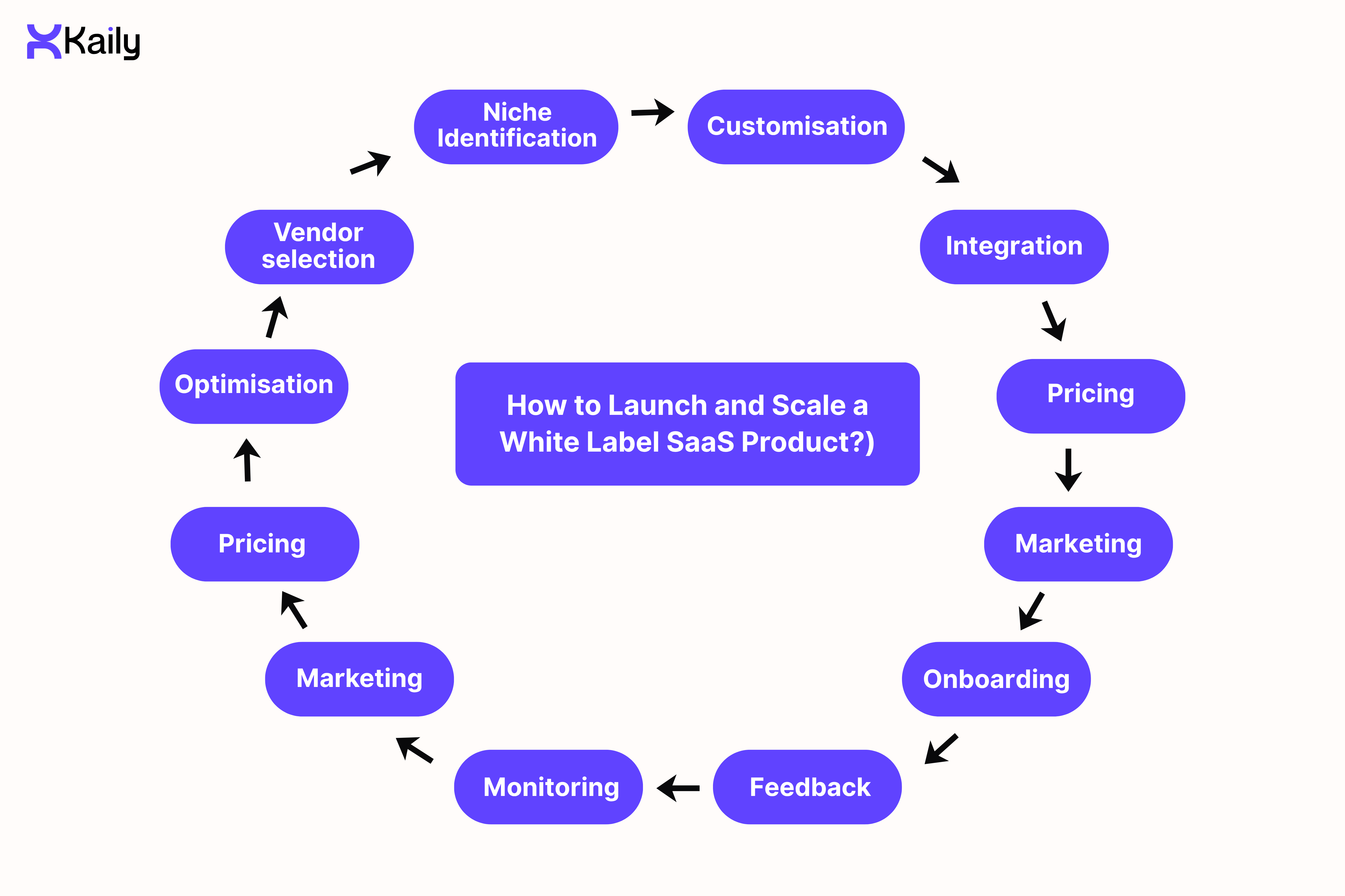
Here’s how you can do it:
- Step 1: Identify your target niche
Identify industries (discussed above) where generic SaaS does not fully meet software needs.
- Step 2: Vet vendors
Before finalising your preferred vendor, make sure to compare features, integration processes, compliance, pricing, and reviews. A vendor like Kaily will offer you an extensive platform with advanced features and guide you through every process.
- Step 3: Set competitive pricing
It is recommended to carefully compare and consider usage, per-seat, or flat subscription models based on your niche market.
- Step 4: Focus on branding
The key to standing out when using white label SaaS solutions is to focus on customising domains and UI, and onboarding advanced flows.
- Step 5: Integrate with key tools
Make sure to integrate API and custom connectors for CRMs, payment portals, and email headers.
- Step 6: Build sales and support
Use inbound marketing or connect with your network to find leads. You may also plan training programs to strengthen your team’s skills.
Lastly, you must monitor churn, implement customer feedback, and assess analytics to refine performance.
Pricing Models – A Quick Breakdown
These are among the most popular white labels Saas pricing models -
- Subscription plans:
In this pricing model, users pay a recurring monthly or annual fee to access the software. Usually, software with tiered levels of features comes with subscription plans.
While it requires active churn management and updates, it can help generate a recurring revenue stream. A white-label platform can charge resellers USD 5 per month per use, who can then proceed to resell it for USD 12 per month. Now, imagine this with 1,000 users, which will let resellers create a monthly recurring revenue of USD 7,000.
- Per User or Seat:
This model charges according to active users or seats using the service. A 2021 OpenView survey found that SaaS companies with use-based SaaS model grew 38% faster compared to the flat fee model, suggesting its popularity.
- Flat Fee:
The fixed pricing model is common for plans with predictable use patterns. It is usually charged regardless of the number of users and is simple to administer.
In this way, white label SaaS helps businesses to launch, brand, and scale software solutions with minimal effort, cost, and risk. As more businesses recognize White label SaaS’s ability to transform the software market, agencies and SMBs are rushing to avail of the best vendor who can cater to their needs.
Data suggests that the white label market is estimated to reach the USD700 billion mark between 2021 and 2026. Today, businesses can easily access software solutions from leading vendors like Kaily to expand product offerings and carve a position in the market.
Having an expert by your side ensures you have the best support at your disposal and can scale growth without second-guessing.
Don’t believe us? Here’s how Kaily AI can help your business -
- Kaily is designed as an AI teammate that understands your business and responds with empathy and personality.
- It can manage conversations 24/7 in over 90 languages, which makes it perfect for reaching customers globally. Kaily offers a no-code builder that allows even small teams to deploy a sophisticated AI assistant quickly.
- Kaily’s AI understands the context of conversations, remembers past interactions, and learns from each customer, which allows it to handle complex queries effectively.
- Kaily can interpret images sent by customers, such as product photos, to suggest matching or complementary items.
- It safeguards all customer data with encryption and audit-ready logs to protect user interest and privacy.
- It can automate up to 85% of your routine tasks and handle millions of simultaneous conversations to speed up resolution times up to 10X.
If you, too, have been thinking about implementing advanced white label SaaS solutions by the end of this year, Connect with the Kaily team to find your best fit.




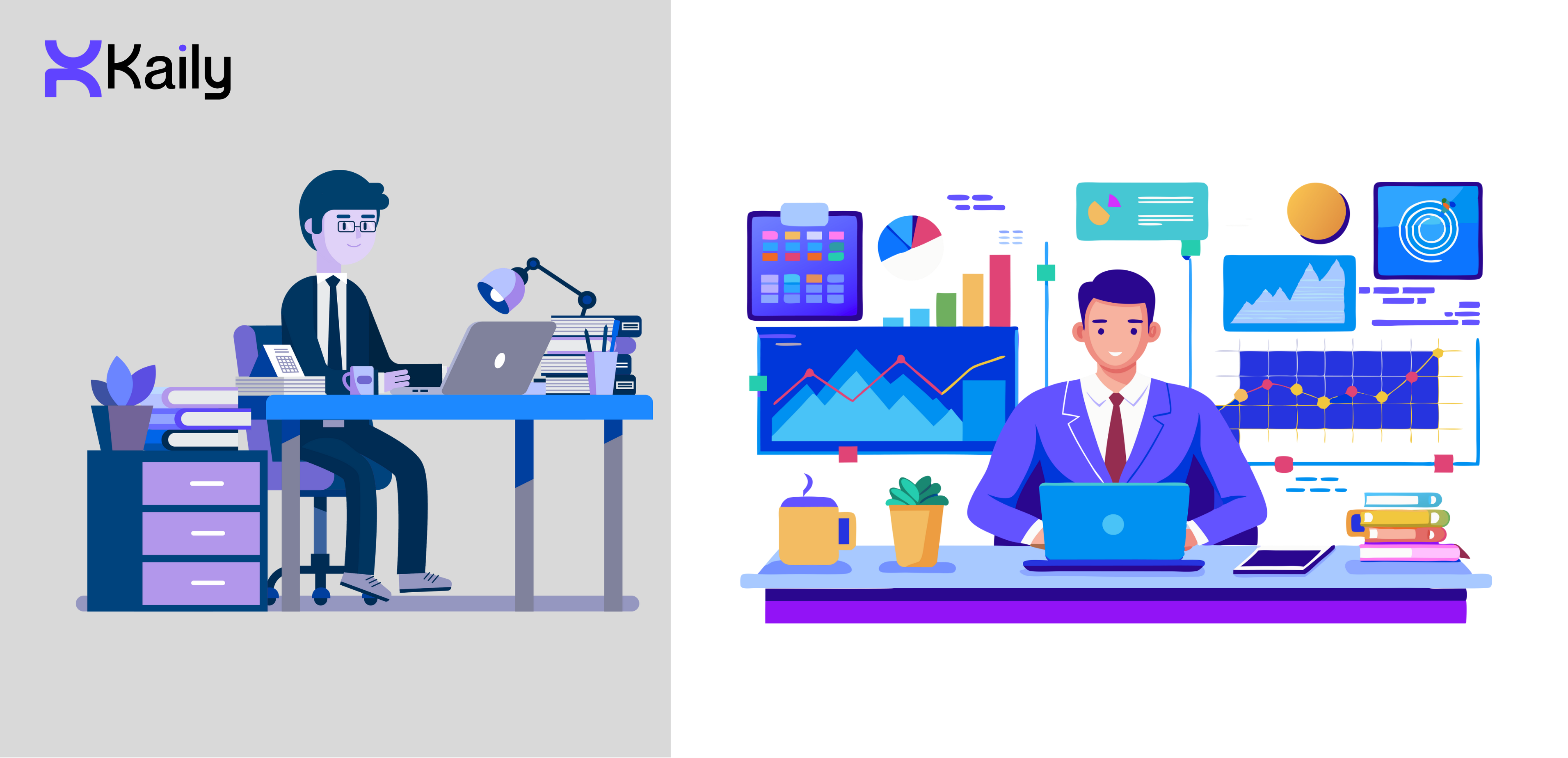



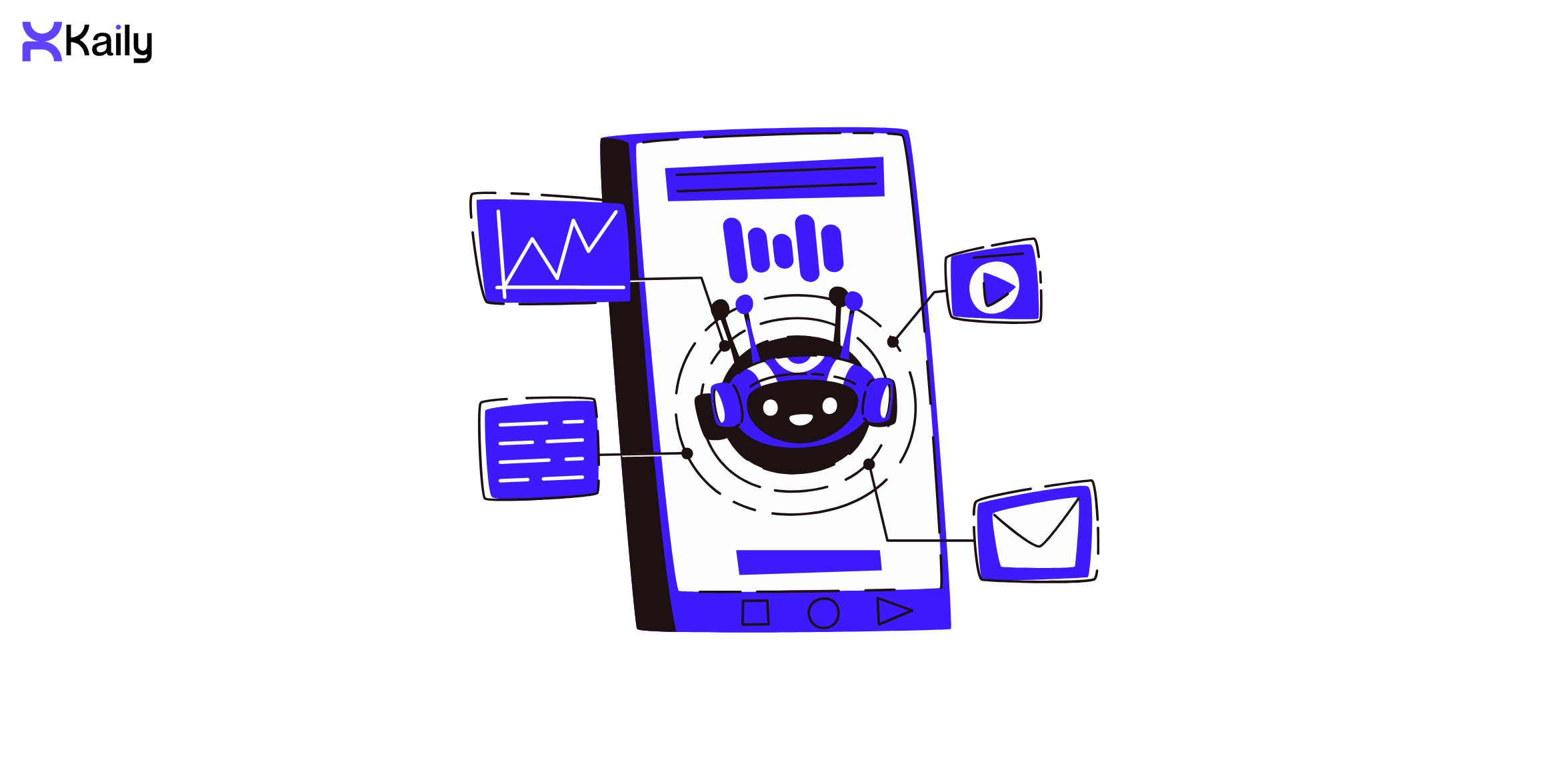
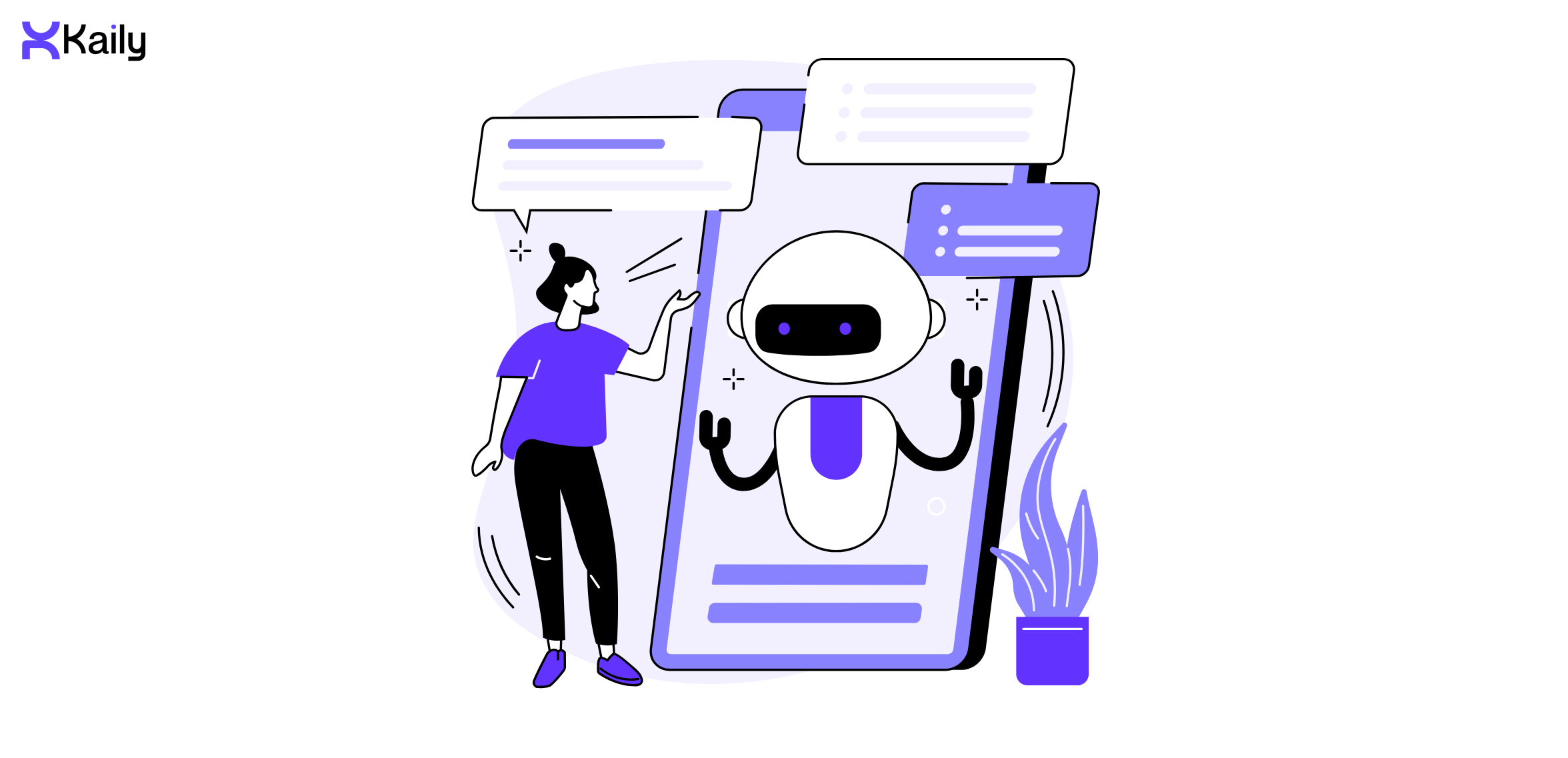













.png)

